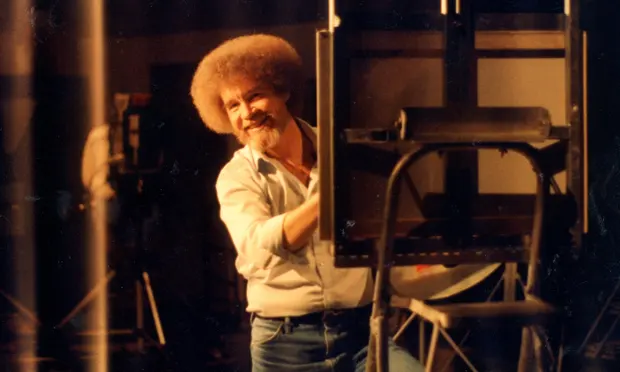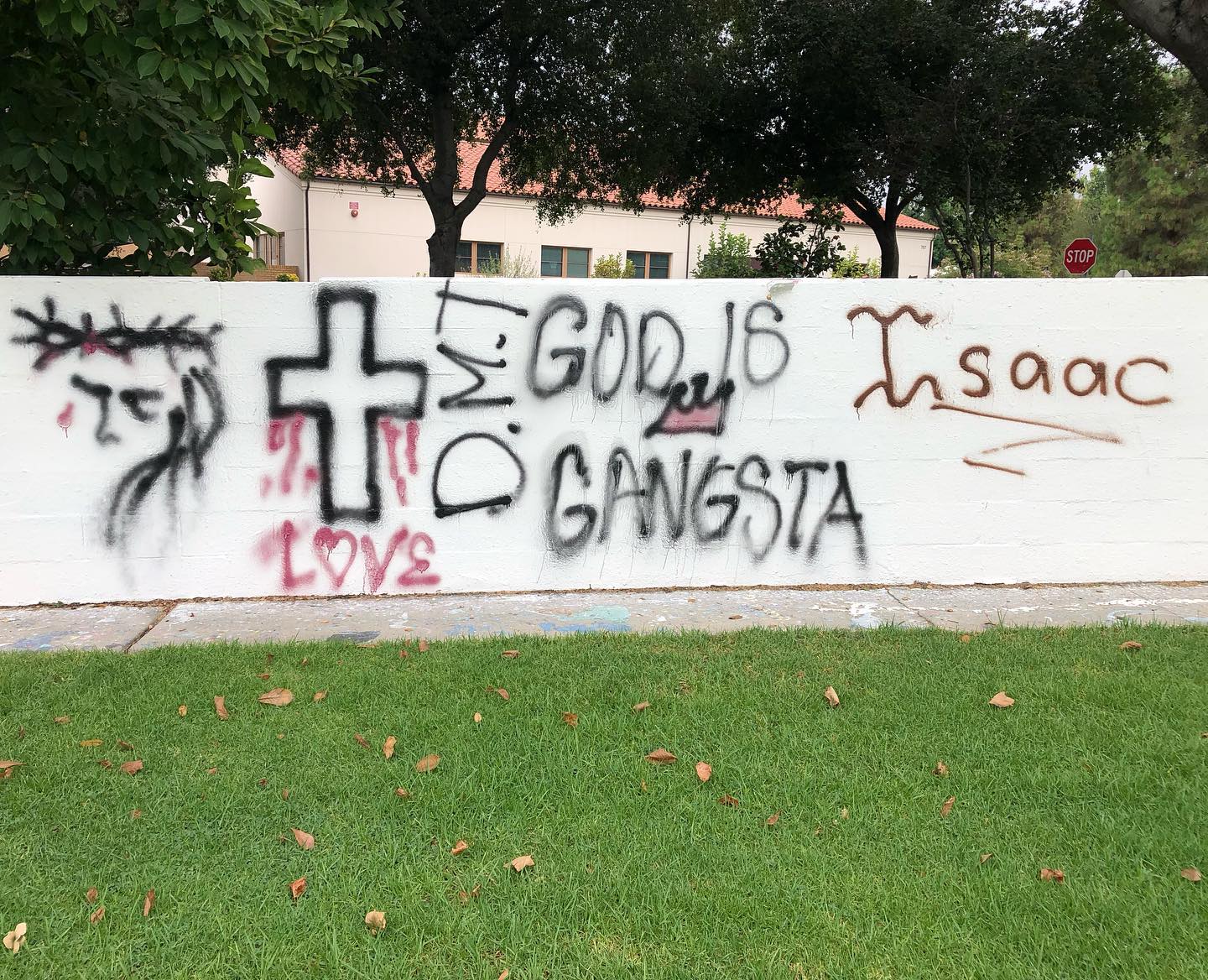
Joshua Rofé on his Bob Ross documentary: “I just want people to feel connected to Bob in a way that actually has more depth emotionally than they ever had the opportunity to.” Photograph: Courtesy of Netflix
From the canvas of PBS stalwart to the petty conflicts of the grave, Bob Ross’ legacy remains rooted in the ethereal landscapes that echoed the soothing sound of his voice. But now, one Netflix documentary aims to paint a different picture of the art icon. In Joshua Rofé’s Bob Ross: Happy Accidents, Betrayal & Greed, the tools of the investigative filmmaker trade are employed to sketch a tale of copyright battles, family strife, and the uneasy coalescing of art and commerce. The documentary, set for a September 2021 release, takes a long, hard look at the inheritance saga that threatens to erode the American TV painter’s serene image.
Ross, the soft-spoken host of The Joy of Painting, led audiences on a gentle journey into the land of “happy little clouds” and “almighty mountains.” His inimitable hairstyle – that 1980s twist on early American democracy, the male perm – and soothing voice offered viewers the opportunity to escape their daily stresses, for just about as long as it takes to complete a 10,000-piece puzzle. But the tranquility that Ross exuded didn’t last for too long, as on July 4, 1995, he died of lymphoma at age 52 – leaving behind not just his 11-year-old son, but a brand that had grown larger than life.
Ross was hardly the quintessential TV painter half a century ago when a budding empire championed him as its premier emblem. The Bob Ross Inc archivists insist on trotting out its origins via the company’s 1984 birth certificate, duly attested by an overly sincere executive duet. Walt and Annette Kowalski were the husband-and-wife team responsible for girding him with brushes and oil paints, eager hands propelling him to the marketing heavens. But just as Ross’ canvas landscapes were pristine, shallow vistas that masked the grittier world outside their margins, the underlying fissure between the artist’s family and his erstwhile promoters grew more and more discernible.
The documentary reveals that posthumous contention, pitting Steve Ross, the forlorn son on one side, and the infinitely nettlesome Kowalski couple, still maneuvering to manipulate the painter’s commercial legacy, on the other. It’s a tussle that presages the broader cultural debate over copyright, intellectual property, and artistic ownership, casting a long shadow over the art world. All of this, rooted in the seemingly bottomless pockets of Ross’ evergreen popularity – a font of annual riches that stretches halfway between kitsch and redemption.
Bob Ross: Happy Accidents, Betrayal & Greed is as much about the painter’s iconic career as it is an exposé, meticulously chronicling his life and posthumous legacy, with a keen balance of reverence and revisionism. Rofé paints an intimate portrait of an enigma who managed to evade the pitfalls of fame – tabloid scandal, drug addiction, and the like – only to succumb to the pain of cancer, an intruder that snuck up unseen and unforgiving. Over the years, Ross had become less a man than a brand – an inflatable, all-purpose mascot for the art world’s eager consumer. But this was hardly how he wanted to sign off.
Today, one can step into a Bob Ross-themed cottage or buy a Bob Ross Chia Pet, channeling the painter whose name is immortalized in the most inconsequential of ways. Joshua Rofé asks us to step back, to behold the vista anew, to examine not just the landscapes where happy little trees grow, but the murky soil beneath. The result is an empathic, yet unsparing view of Ross, which is sure to leave fans mulling some of the tougher questions that are usually sidestepped in favor of gentle reverie.
The documentary features interviews with family members, ex-business partners, and a slew of critics and fans whose reflections trace Ross’ meteoric rise in the 1980s as a TV star and his shocking death a decade into his career. Viewers are not spared the disquieting reality beneath the placid surface, as Bob Ross: Happy Accidents, Betrayal & Greed peers into the cavernous schism that threatens to rip Ross’ family and legacy apart.
There can be no doubt that Joshua Rofé wants us to consider his film as a primer on the pitfalls of commodifying art, a critique of our collective haste to merchandise the image and likeness of a beloved figure. It stands against the earnest, almost laughably naiïve works peopled by stooping cottonwoods and wayward Appalachian springs. It strips away the comforting illusion of stasis, revealing the unflinching realities and fractures that lie beneath.
The film does not undermine Ross’ oeuvre, nor does it minimize his genius. It simply asks us to place him in the crook between consumerism and artistry, a bittersweet and nostalgic corner of a world larger and more complicated than its inhabitants ever imagined. In short, Bob Ross: Happy Accidents, Betrayal & Greed is as complex and contemplative as a Bob Ross painting is simple and serene – a fitting counterbalance to the very thing it studies.
With this new addition to the Netflix canon, viewers may find themselves with a restored appreciation for the virtues of shared cultural touchstones, and as the credits roll, in quiet awe at the scope of Rofé’s canvas.
